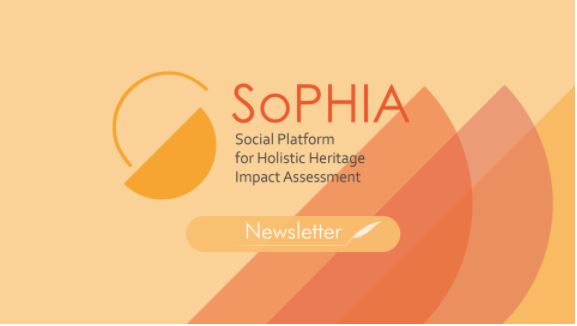 This first edition of the SOPHIA project Newsletter “Cultural Heritage and Impact Assessment” provides a general overview of the mission and challenges of the social platform. It invites to reflect on the importance to assess and evaluate projects dealing with cultural heritage by adopting an holistic point of view.
This first edition of the SOPHIA project Newsletter “Cultural Heritage and Impact Assessment” provides a general overview of the mission and challenges of the social platform. It invites to reflect on the importance to assess and evaluate projects dealing with cultural heritage by adopting an holistic point of view.
It also introduces the first outputs of the projects presenting the outcomes of the first workshop, the first scientific production and new collaborations.
The full title of SOPHIA is “Social Platform for Holistic Impact Heritage Assessment” and it aims to promote collective reflection within the cultural and political sector in Europe on the impact assessment and quality of interventions in European historical environment and cultural heritage at urban level.
Subscribe the newsletter and stay up to date on the latest initiatives promoted by the project.
Subscribe here
Link to the Sophia newsletter here
Sophia website: www.sophiaplatform.eu/
Twitter: @sophia_platform
Facebook: Sophia Platform
Contact:info@sophiaplatform.eu
-
Join the
Digital Meets Culture
Newsletter! -
Join the
Digital Meets Culture
Open Newsroom! If you have interesting news and events to point out in the field of digital cultural heritage, we are waiting for your contribution.
If you have interesting news and events to point out in the field of digital cultural heritage, we are waiting for your contribution.
-
Free text
-
-
Upcoming events
 The Summer School will be held in Zlarin, Croatia, on September 20-24, 2024. The deadline for submissions to the Public Call is June 24, 2024.
The Summer School will be held in Zlarin, Croatia, on September 20-24, 2024. The deadline for submissions to the Public Call is June 24, 2024.-
 Following, an article from the project's team, providing a report of the meeting
Following, an article from the project's team, providing a report of the meeting“Programme of Small-scale partnership in school education of the Erasmus+ Project From İntangible Expression to Digital Cultural Heritage European number: 2021-Round 2-KA210-SCH-0A1738D9 Our last meeting in Turkiye took part from 23rd to 27th of October in 2023 with the participation … Continue reading →
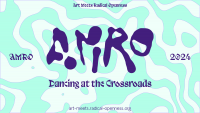 AMRO 2024 was held in Linz from May 8 to 10, 2024
AMRO 2024 was held in Linz from May 8 to 10, 2024The 2024 edition of Art Meets Radical Openness (AMRO), the biennial festival for art, hacktivism, and open cultures, has just come to an end. Held in Linz from May 8 to 10, it offered a context for discussing the … Continue reading →


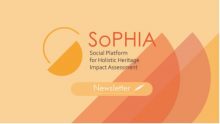
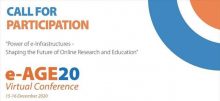
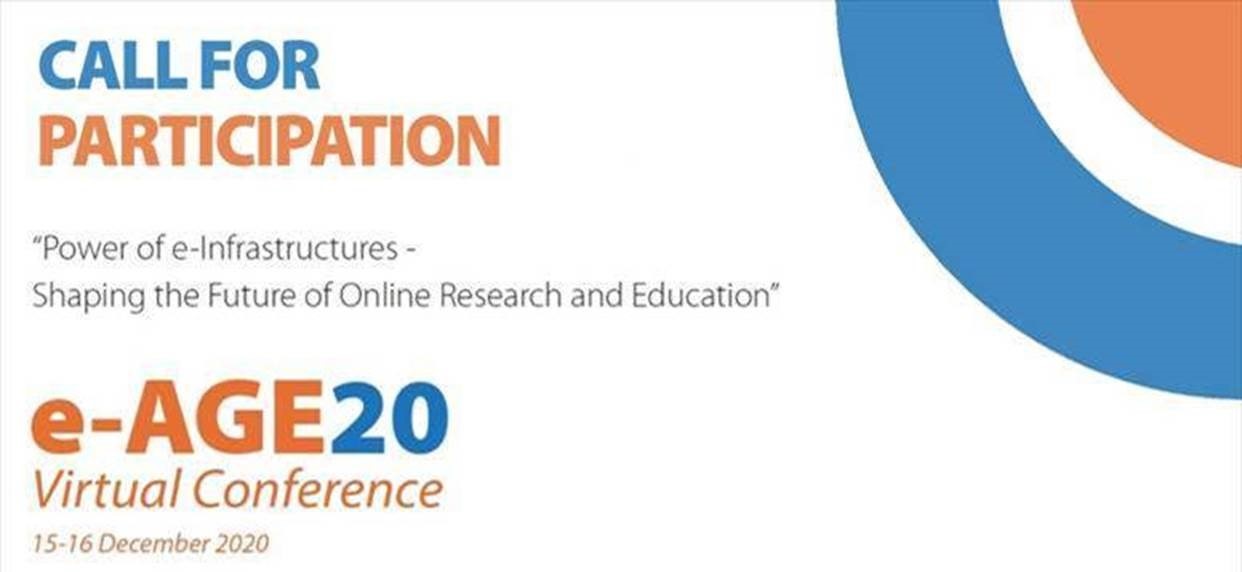
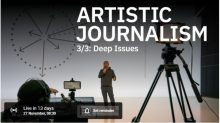
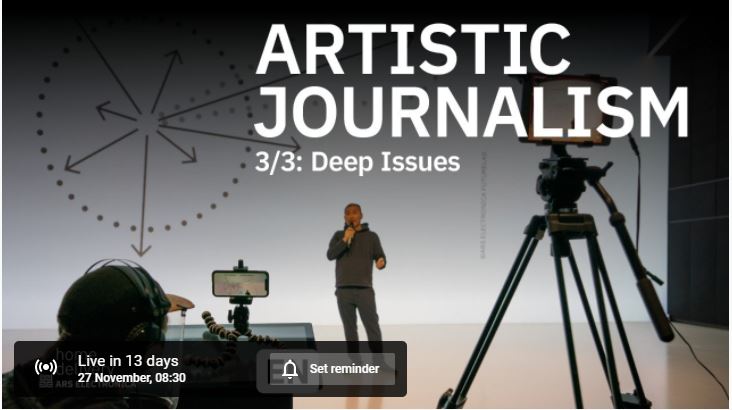 In the framework of its Home Delivery initiative, the Ars Electronica Center, organized a series of online classes focused on Artistic Journalism. Starting by the reflection on the dramatic social changes caused by the Covid19 pandemic, the classes present artistic journalism as a new media, place, and system for broadly experiencing and discussing the future and new challenges.
In the framework of its Home Delivery initiative, the Ars Electronica Center, organized a series of online classes focused on Artistic Journalism. Starting by the reflection on the dramatic social changes caused by the Covid19 pandemic, the classes present artistic journalism as a new media, place, and system for broadly experiencing and discussing the future and new challenges.
 OpenHeritage launched a series of online interactive workshops focusing on key aspects of adaptive heritage reuse. The project, which full title is “OpenHeritage: Organizing, Promoting and ENabling HEritage Reuse through Inclusion, Technology, Access, Governance and Empowerment”, focuses on the creation of sustainable models of heritage asset management and aims to empower the community in the processes of its adaptive reuse.
OpenHeritage launched a series of online interactive workshops focusing on key aspects of adaptive heritage reuse. The project, which full title is “OpenHeritage: Organizing, Promoting and ENabling HEritage Reuse through Inclusion, Technology, Access, Governance and Empowerment”, focuses on the creation of sustainable models of heritage asset management and aims to empower the community in the processes of its adaptive reuse.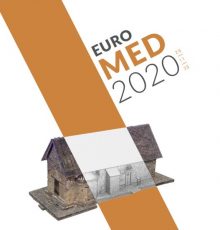
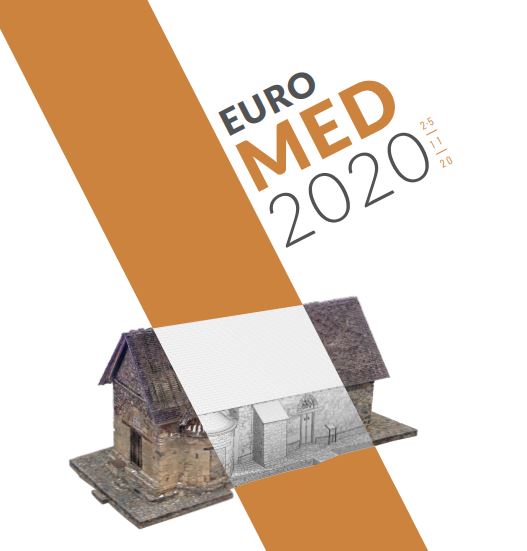 During the 4 days conference a rich and varied agenda of project’s presentations and workshops have shown new ways to conceived and manage cultural heritage, new challenges for digitization to foster engagement and social participation as well as new horizons to support the resilience of culture in its intangible and tangible dimensions. The richness of the proposals had literally stuck participants to their videos during all day long. The event gathered 1063 participants from 77 different countries from all the continents of the world.
During the 4 days conference a rich and varied agenda of project’s presentations and workshops have shown new ways to conceived and manage cultural heritage, new challenges for digitization to foster engagement and social participation as well as new horizons to support the resilience of culture in its intangible and tangible dimensions. The richness of the proposals had literally stuck participants to their videos during all day long. The event gathered 1063 participants from 77 different countries from all the continents of the world.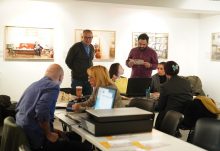
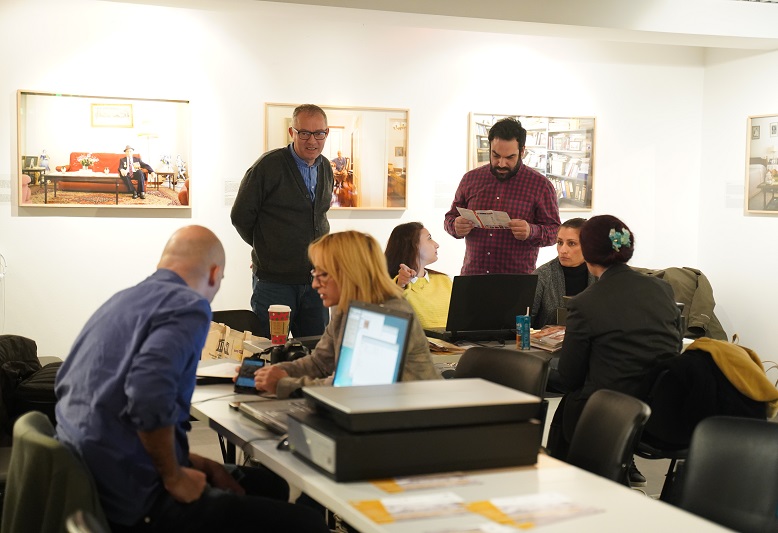


 A very intense period for the REACH project the one between the end of October and the beginning of November: 2 on line events provided the occasion to present the results of the REACH project activities and to increase its network.
A very intense period for the REACH project the one between the end of October and the beginning of November: 2 on line events provided the occasion to present the results of the REACH project activities and to increase its network.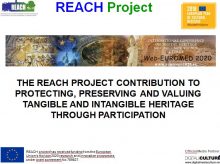
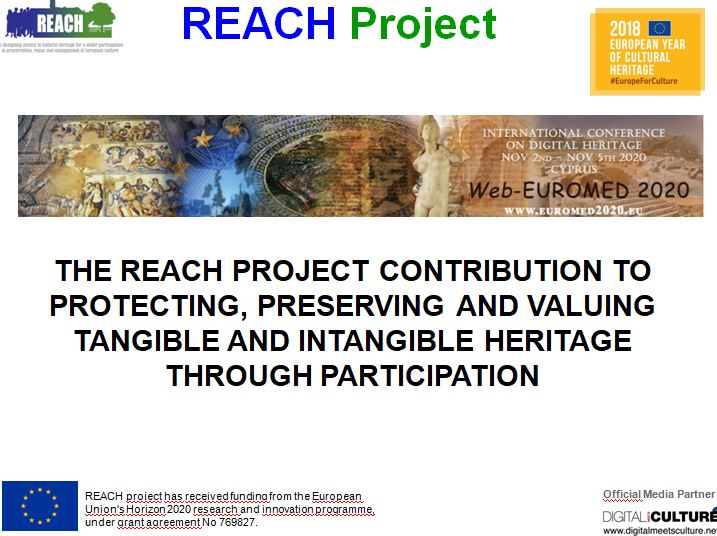 In the framework of the storytelling session of Euromed 2020 conference, the social platform of the REACH project will leave its contribution presenting a short speech titled “The Reach Project Contribution to Protecting, Preserving and Valuing Tangible and Intangible Heritage through Participation”
In the framework of the storytelling session of Euromed 2020 conference, the social platform of the REACH project will leave its contribution presenting a short speech titled “The Reach Project Contribution to Protecting, Preserving and Valuing Tangible and Intangible Heritage through Participation”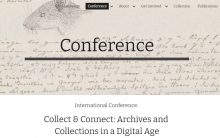
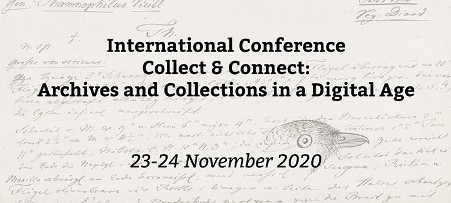

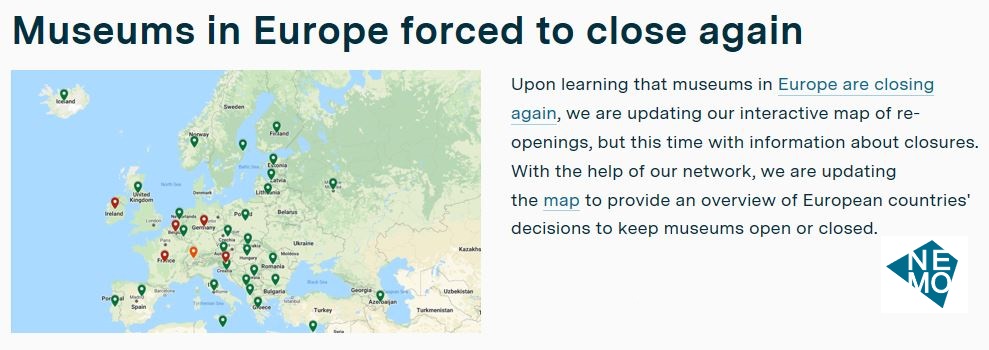 Six months ago,
Six months ago, 



































